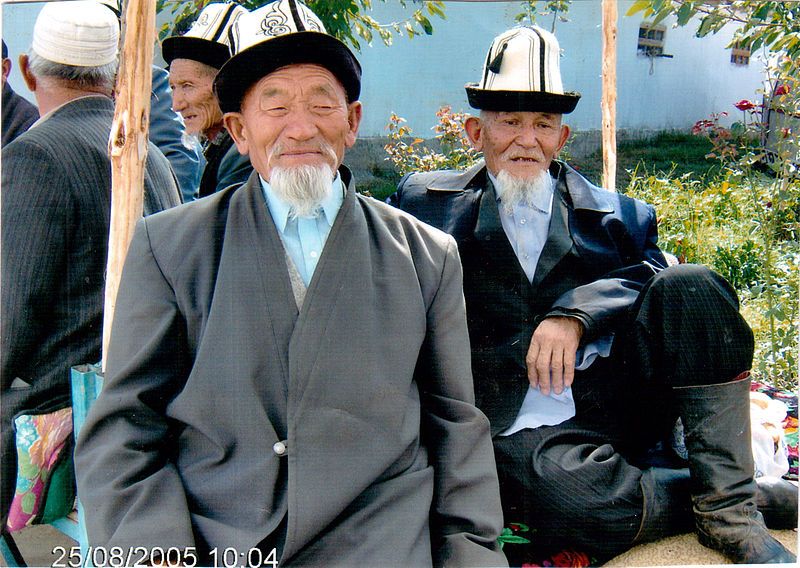 @Wikipedia
@Wikipedia
The Ministry of Justice of Kyrgyzstan suggests humanization of criminal law and delegating minor offences cases to Aksakal courts for consideration. While the parliament is discussing the document, 24.kg news agency decided to ask citizens will such court be able to meet the acting judicial standards.
***
Orozbek Moldaliyev, political analyst, President’s representative in the Parliament:
-It is spoken about improvement of Aksakal courts and their functions. We have a lot of minor conflicts in villages, and the elders can reconcile hostile parties and set young people in the right way. The point is whether the members of Aksakal court are impeccable and authoritative enough. It’s not a secret most of them became partial under the previous two presidents. Some of them have been always invited to all events to praise the head of the state. Not all of them were such people, of course. Therefore, the mechanism will work if local governments are able to choose literate and fair candidates.
Ainura Arzymatova, Doctor of Historical Sciences, Professor:
-It’s the 21st century today, after all. We have state courts. Aksakal courts are just a demagogy. Who says all the elders are the people with high moral standards? How do you know they will act fair? There is not a single guarantee. Tribalism and ethnicism will start again.
Marat Kazakpayev, political analyst:
-No, they will not. Yes, most spheres are corrupt today, so the people are looking for alternatives. The elders only can put people to shame and bring someone to senses. Yet, they are not professionals and know little about the judicial system. They are going to draw a lot of criticism. We have first instance courts for the purpose. They have to solve cases within the law and judicial reform.
Sarylbek Borbashev, member of Judge Selection Council:
- If only honest, competent, and professional elders- former law enforcement officers are selected to the courts, this certainly will lighten the work of district and city courts. But if the elders are selected on the basis of their age and authority in a province or region and don’t know the difference between right and wrong, they are going to fail this task.
Ravshan Gapirov, human rights defender, lawyer:
- There are many Aksakal courts around the country, but almost all of them are inefficient at all. It’s because candidates are appointed, not elected by local residents. According to the law, citizens have right to elect members of courts themselves. Candidates are supposed to draft regulations, register and have own stamps and letter-heads. But none of them has anything of it. Nobody trained or worked with them. Why should the elders care if the government doesn’t? If they worked at the local level, a lot of cases wouldn’t reach courts. In my opinion, they are not ready for work at all.
Kalicha Umuraliyeva, leader of Nashe Pravo NGO:
-We conducted a study as part of the Aksakal courts project and tried to find out how they help to solve school racket problem and about their work with teenagers. It became clear that only some of the Aksakal corts are working. Most of them are formal organizations and their members have no juridical education and know nothing about legal proceedings.
Will you turn to an Aksakal court?
- No, in my district I’ll not.
Gulshayir Abdirasulova, consultant at Kylym Shamy NGO:
-There had been many such institutions in Kyrgyzstan’s history. Speaking honestly, when you read a book or watch historical movies, you get the impression they worked more efficiently than today’s state legal institutions.
-As for Aksakal courts, we have no administrative courts like in more developed countries. And if Aksakal courts are ready to shoulder the administrative courts, why can not we try it? We know what’s happening in courts. People are being equally punished for theft of a chicken and murder. As a result, people, especially young people, totally change. Prison warps peoples’ life. Therefore, Aksakal courts would be better in such cases.
In fact, we still have Aksakal courts in outlying regions that work even today. Local residents turn to them as district courts are too far to reach. The elders solve minor problems, domestic conflicts, and fights. Delegating of administrative cases to Aksakal courts of will help to lighten the work of other courts, thus allowing them be more careful in judgments. But there is a problem: people often ignore decisions of Aksakal courts and go to district courts. And their decisions often conflict with each other. Well, that’s another matter. Therefore, we have to develop Aksakal courts until there are no administrative courts.
 В Атырау -10
В Атырау -10